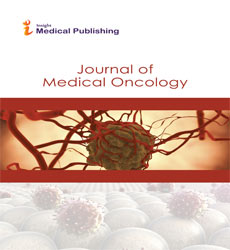Target therapy of Morphine dependence in addicted patients.
Abstract
Nowadays, people in several countries are coping with complications of addiction. Although, there are a wide range of studies, investigating the morbidity rate and involved agents of this disease one of the life-threatening and disastrous disease. Unfortunately, due to lack of sufficient data about complex molecular neuroimmunobiologic signaling, recent diagnostic approaches have not been efficacious for all patients, yet. These challenges will be more problematic when clinicians are witness of progressive psyconeuroendocrinologic disorders, and even overlap in diagnosis of clinical manifestations with other disorders. Hence, medical sciences progress toward more updated genetic and bioinformatics protocols in clinical trials. These protocols have facilitated more accurate prognosis and early diagnosis, eventuating to accurate immunotherapeutic purposes with less mortality and morbidity rate. Given the importance of neuro immune genes involved in inflammation and pain pathways in drug resistance and addiction, and realization of the immunopathophysiology contributing to behavioral and cognitive aspects, there is a paradigm shifts in the field of diagnostic and therapeutic approaches for addiction using molecular strategies. Thereafter, diagnostic applications of microRNAs (miRNAs) have been taken into account. MiRNAs are small conserved non-coding single-stranded endogenous RNA (19~23 nucleotides). MiRNAs exert their role through degradation or inhibition of the target mRNA translation by interaction with the 3′ untranslated region (3′UTR) of target mRNAs. Ultimately, a myriad of cell processes as: proliferation, post-translational gene expression, determination of the clinical prognosis, ectopic expression in diagnosis, evading from host immunity and targeted therapy have been regulated by host miRNAs. It has been demonstrated that alterations in serum levels of host miRNA and their target genes in pathologic microenvironment, introduces miRNA implementation as a logical approach for diagnosis. The role of miRNA in addiction to substances such as morphine, as well as tolerance to them, has been proven in many studies. Accordingly, miRNA-targeted clinical outcomes of addiction have been highly recommended.
Open Access Journals
- Aquaculture & Veterinary Science
- Chemistry & Chemical Sciences
- Clinical Sciences
- Engineering
- General Science
- Genetics & Molecular Biology
- Health Care & Nursing
- Immunology & Microbiology
- Materials Science
- Mathematics & Physics
- Medical Sciences
- Neurology & Psychiatry
- Oncology & Cancer Science
- Pharmaceutical Sciences
